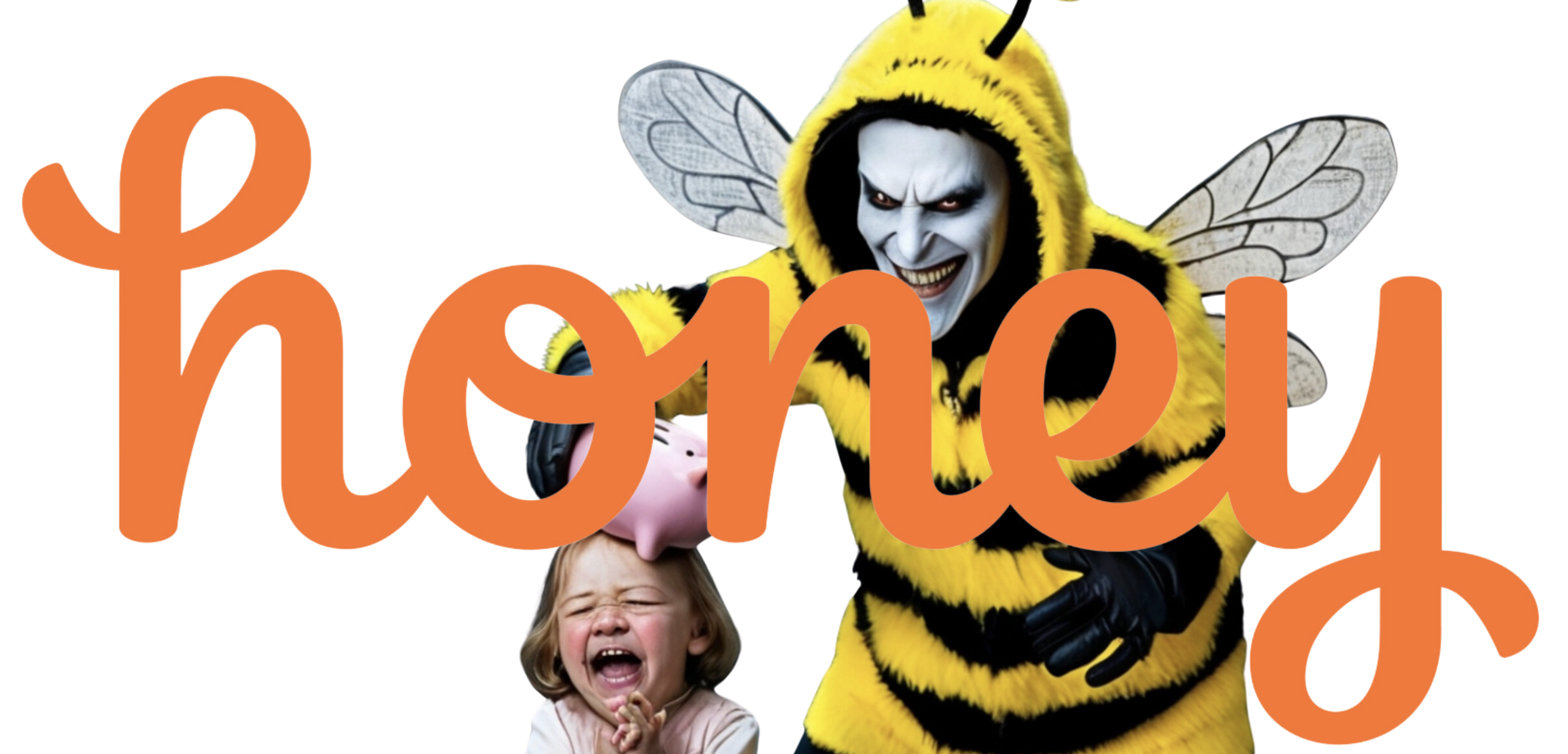The Dark Side of Sweet Deals: How PayPal's Honey Is Secretly Stinging Everyone
“like stealing money from a baby”
Remember when every YouTuber and their goldfish was telling you about this amazing browser extension called Honey? The one that supposedly scours the internet for coupon codes like a caffeinated bargain hunter on Black Friday? Well, grab your popcorn, because it turns out this "free money" tool might be costing everyone more than we thought.
The Not-So-Sweet Truth About PayPal's Honey
You know that old saying, "If something's free, you're probably the product"? Well, in Honey's case, you might not be the only product – you're just the first course in a multi-course meal of digital deception.
How Honey Pulls the Digital Sleight of Hand
Picture this: You're at a department store, and a helpful salesperson spends an hour helping you choose the perfect TV. Right as you're about to check out, another salesperson pops up like a retail ninja, whispers "let me check for discounts," and somehow ends up getting credit for the sale. Sounds ridiculous, right? Welcome to Honey's business model.
The Three-Act Magic Trick
The Basic Swap: Honey quietly replaces affiliate cookies faster than a magician's card trick
The Gold Rush: Offers points in exchange for stealing commissions (spoiler: it's pennies on the dollar)
The Empty Promise: Shows up with nothing to offer except a "helpful" PayPal checkout button
The Great Coupon Code Conspiracy
Remember how Honey promised to find "every working code on the internet"? Well, that's about as accurate as your friend who claims they "invented Bitcoin but lost the password." Here's what's really happening:
Partner stores control which codes Honey can share
Better codes often exist but are intentionally hidden
Honey-branded codes mysteriously appear (what a coincidence!)
The Numbers Game: Honey's Massive Influence Campaign
Nearly 5,000 sponsored videos
Approximately 1,000 different YouTube channels
A staggering 7.8 billion views
One very expensive acquisition by PayPal ($4 billion)
That's a lot of buzz for a browser extension that's essentially playing digital pickpocket with affiliate commissions.
The Real Cost of "Free" Money
Think you're saving money? Here's the plot twist:
Influencers lose commission revenue
Small content creators get stung
Consumers often miss out on better deals
Merchants end up raising prices to compensate
And the cherry on top? When one of their biggest promoters, Linus Tech Tips, discovered what was happening and asked them to stop, Honey essentially said "nah, we're good" and kept right on buzzing along.
The BBB Plot Twist
When the Better Business Bureau started asking questions about Honey's advertising claims, the company suddenly discontinued those claims for "business reasons." Totally not suspicious at all, right?
What This Means For You
Every time you click that little Honey button, you're not just looking for deals – you're potentially:
Missing out on better discount codes
Unknowingly helping divert commissions from content creators
Contributing to a system that ultimately drives up prices
The Bottom Line
It turns out that Honey isn't just a free browser extension – it's a masterclass in digital sleight of hand that would make David Copperfield jealous. While we were all distracted by the promise of savings, PayPal's little helper was busy rewriting the rules of affiliate marketing and coupon hunting, one click at a time.
Source: Based on investigative findings from MegaLag’s YouTube exposé "The Dark Truth About Honey" (https://www.youtube.com/watch?v=vc4yL3YTwWk)
Looking for more deep dives into the tech world's darker corners? Check out our other exposés on digital privacy, online shopping, and the true cost of "free" services. Because sometimes, the best deals are the ones that don't require selling your digital soul.
